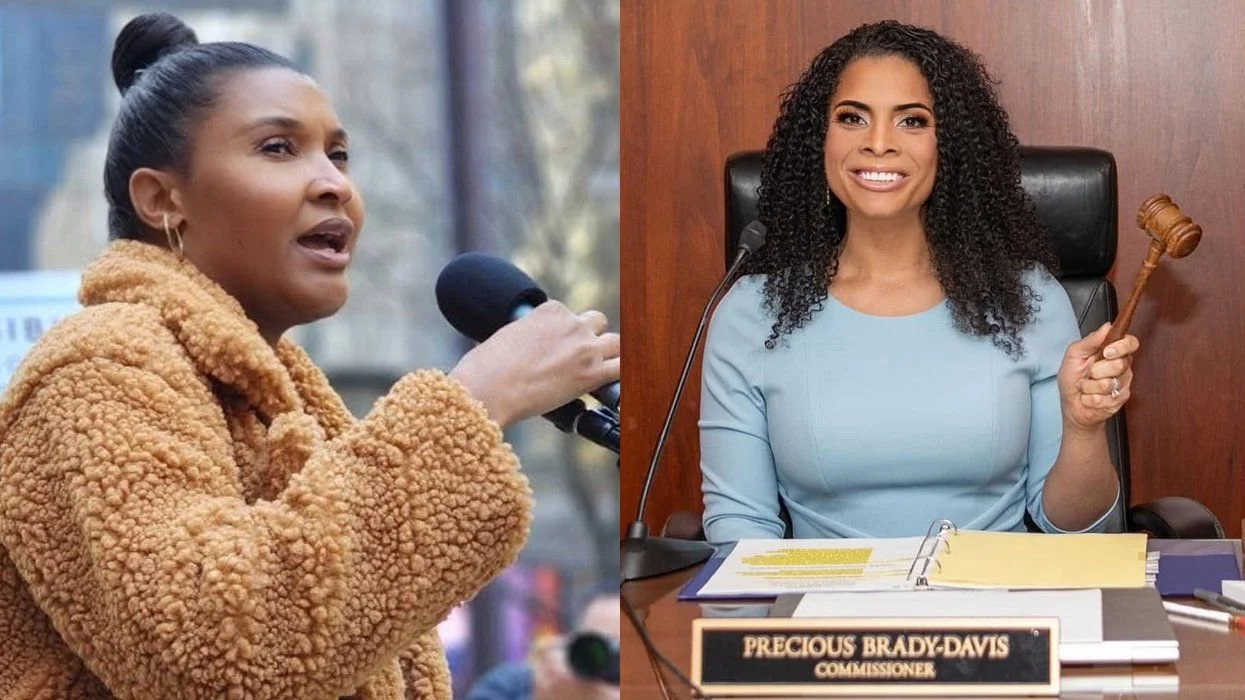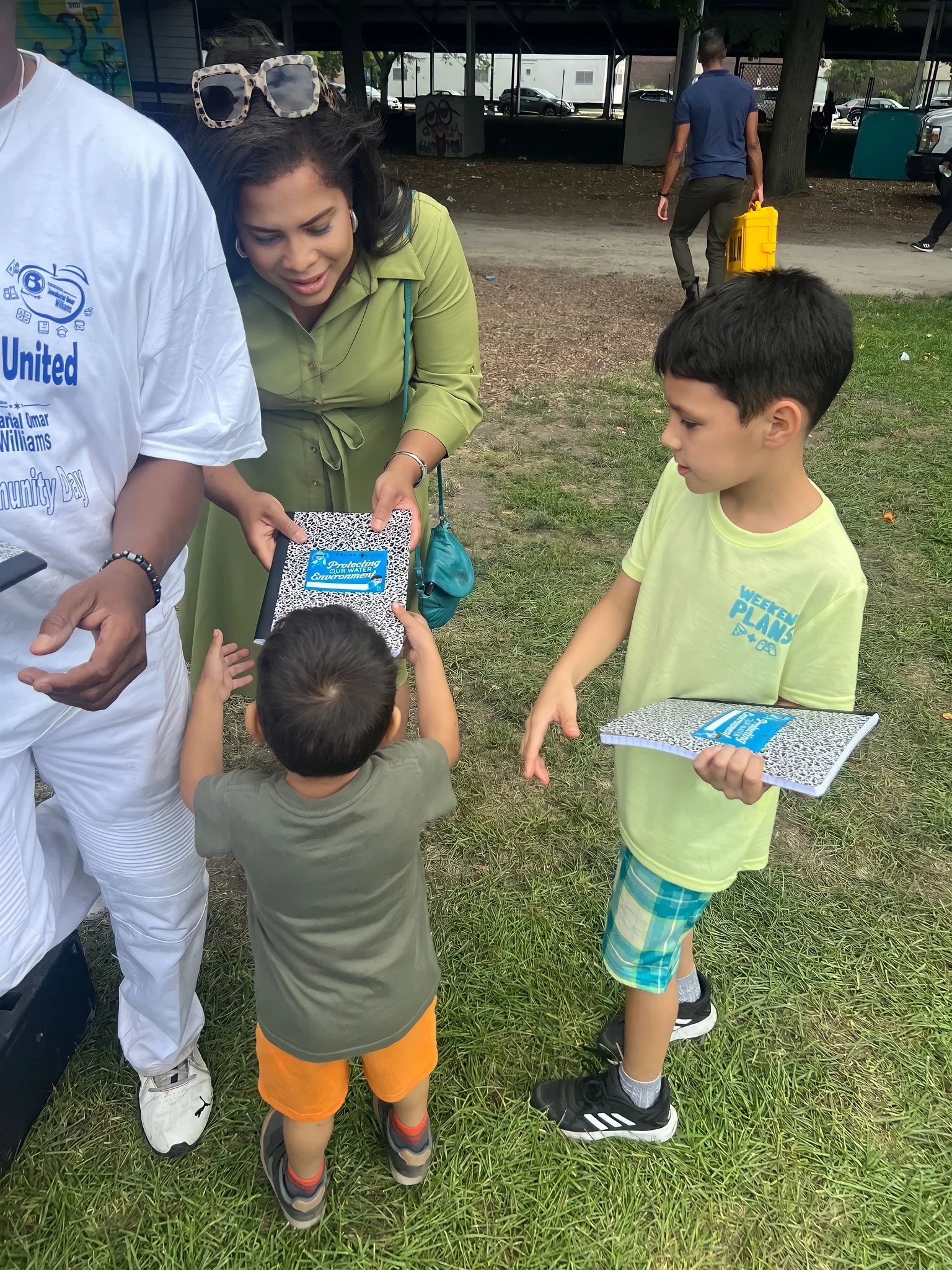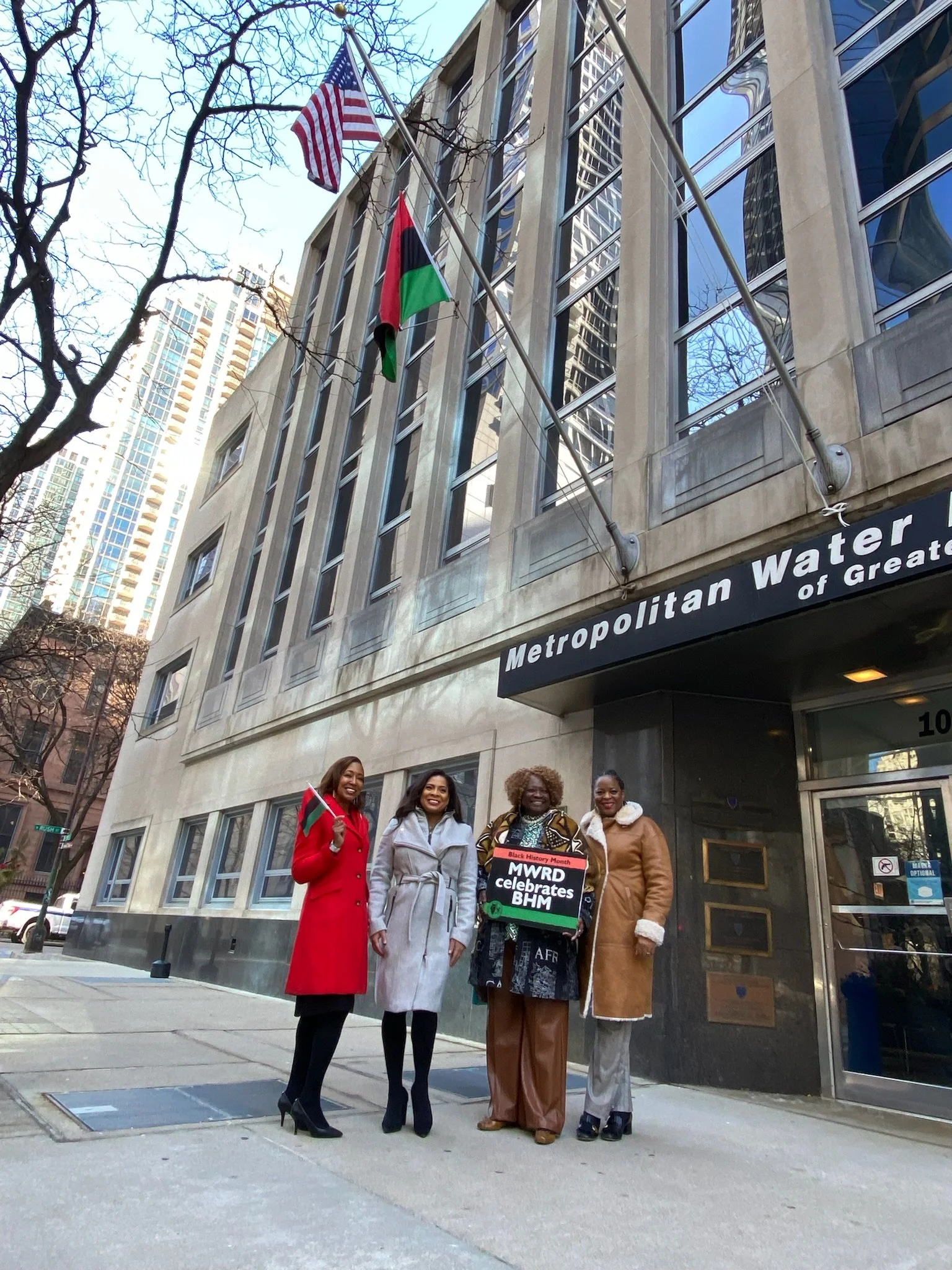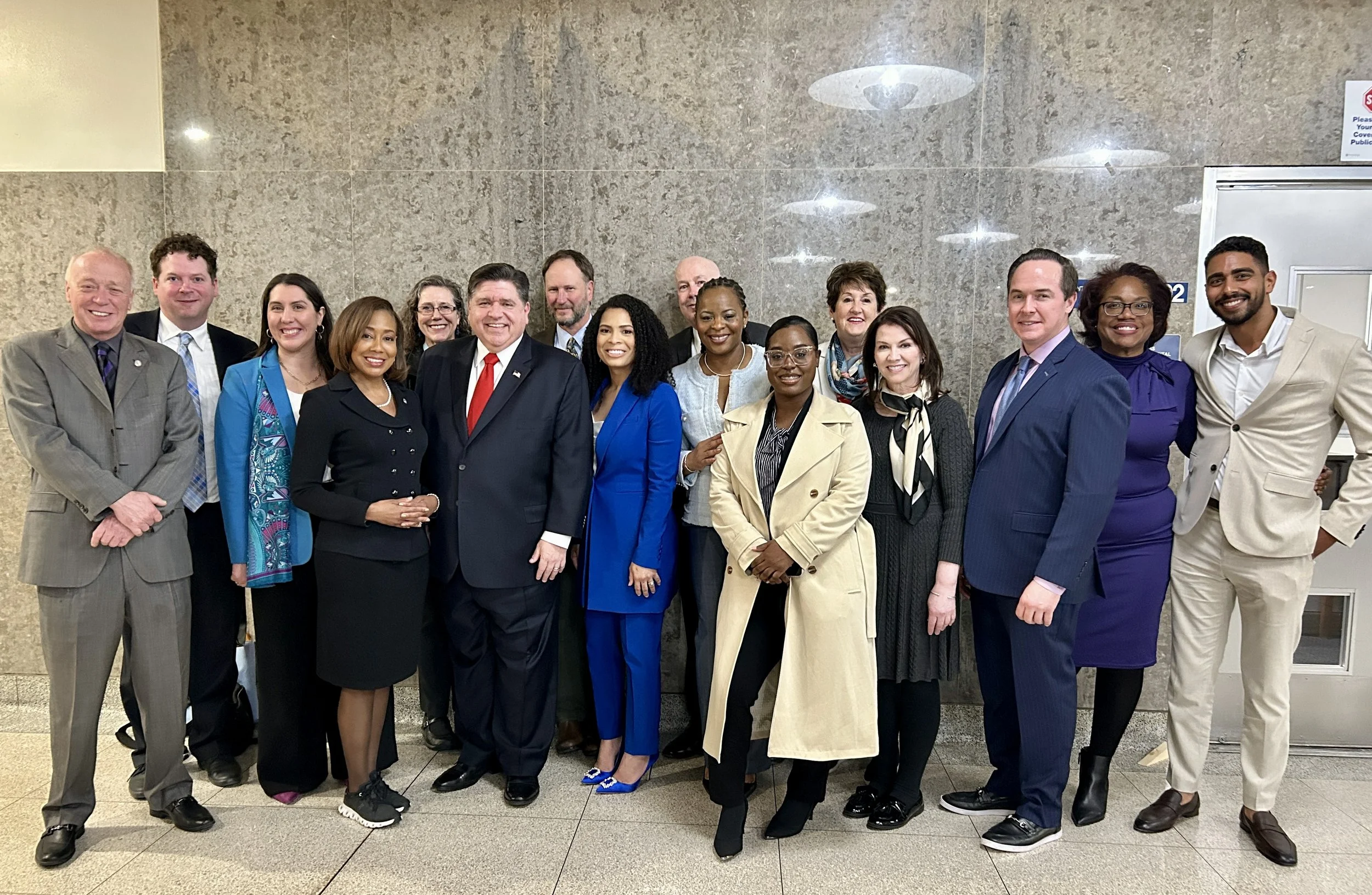METROPOLITAN WATER RECLAMATION DISTRICT OF GREATER CHICAGO
✦
TREATING WASTEWATER
✦
HELPING MANAGE STORMWATER
✦
PROTECTING OUR PRIMARY SOURCE OF DRINKING WATER, LAKE MICHIGAN
✦
METROPOLITAN WATER RECLAMATION DISTRICT OF GREATER CHICAGO ✦ TREATING WASTEWATER ✦ HELPING MANAGE STORMWATER ✦ PROTECTING OUR PRIMARY SOURCE OF DRINKING WATER, LAKE MICHIGAN ✦
Welcome to the Metropolitan Water Reclamation District of Greater Chicago, or MWRD! This video offers a brief overview of the treatment processes at our water reclamation plants, perfect for tour visitors and those watching from home.
Enjoy this brief introduction, and we look forward to showing you everything in person! You can visit https://mwrd.org/education/tours to learn more about or facility tours.
Fill out and submit an MWRD Facility Tour Request Form to book your tour today.
MWRD Commissioner
Precious Brady-Davis
Precious Brady-Davis was appointed to the Metropolitan Water Reclamation District of Greater Chicago (MWRDGC) in July 2023 and, in November 2024, was elected to serve the remainder of an unexpired two-year term. She is the first openly Black transgender woman elected to public office in Cook County history and the first to serve on a water reclamation district in the United States.
MWRD
Established in 1889, the Metropolitan Water Reclamation District of Greater Chicago (MWRD) is an award-winning, special purpose government agency responsible for treating wastewater and managing stormwater in Cook County, Illinois. We strive to be a responsive neighbor that engages with the public on several critical water-related issues that improve the quality of life for all.
Our Mission MWRD will protect the health and safety of the public in its service area, protect the quality of the water supply source (Lake Michigan), improve the quality of water in watercourses in its service area, protect businesses and homes from flood damages, and manage water as a vital resource for its service area.
PHOTO: STICKNEY WATER RECLAMATION PLANT
How Chicago Cleans 1.4 Billion Gallons of Wastewater Every Day
The Stickney Water Reclamation Plant in Illinois is one of the largest wastewater-treatment facilities in the world, serving about 2.3 million people and cleaning an average of 700 million gallons of wastewater a day. During rainfall, the facility can handle a whopping 1.44 billion gallons of wastewater in a single day — that's a million gallons every minute. The clean water is released into the Chicago Sanitary and Ship Canal, and the sludge that is removed from the water is converted to biosolids, which are a sustainable alternative to chemical fertilizers.
MWRD Virtual Tour: Deep Tunnel, Wastewater Treatment, Green Infrastructure, Chicago Water History
This is a video version of the Metropolitan Water Reclamation District of Greater Chicago's virtual tour.
Travel back in time to early Chicago to see how we reversed the Chicago River and developed wastewater treatment technology. Go behind the scenes and under water to see how we transform the water you use every day; descend 300 feet into the deep tunnel system, and watch our electrofishing crew at work sampling fish on the Chicago River.
To see FAQs and sign up for a live virtual tour: https://mwrd.org/facility-and-virtual
Frequently Asked Questions
-
Created in 1889, the Metropolitan Water Reclamation District of Greater Chicago (MWRD) is an award-winning, special-purpose district responsible for treating wastewater and providing stormwater management for residents and businesses in its service area, which encompasses 882.1 square miles and includes Chicago and 128 suburban communities throughout Cook County. The MWRD’s services are provided to an equivalent population of 12.72 million each day, including 5.19 million residents, a commercial and industrial equivalent of 5.29 million people, and a combined sewer overflow equivalent of 2.24 million people. As the protector of water resources, we work diligently to protect Lake Michigan, the source of drinking water, as well as the health and safety of citizens and area waterways. With a total treatment capacity of more than 2 billion gallons per day, we own and operate seven water reclamation plants, 560 miles of intercepting sewers and force mains and 23 pumping stations. The MWRD has approximately 190 acres of lagoons and 210 acres of paved drying-beds for managing biosolids associated mainly with the Calumet and Stickney Water Reclamation Plants. A 100-acre Fischer Farm located within the Hanover Park Water Reclamation Plant is used to manage biosolids produced at that facility. In addition, the MWRD controls 76.1 miles of navigable waterways, owns and operates many regional stormwater reservoirs, and has undertaken significant improvements of streams, channels, and creeks to provide regional flood protection. The MWRD’s Tunnel and Reservoir Plan, which includes more than 109 miles of tunnels and three major reservoirs, also protects area waterways from pollution and mitigates flooding in communities served by combined sewer systems across 375 square miles.
-
The MWRD operates seven water reclamation plants, including the largest in the world, the Stickney Water Reclamation Plant. These plants treat wastewater before releasing it into local waterways.
-
The MWRD is primarily funded through property taxes levied on properties in Cook County. Other sources of revenue include grants, fees from industrial waste dischargers, and the sale of biosolids produced during water treatment.
-
The MWRD is responsible for managing regional stormwater to mitigate flooding throughout Cook County. This includes overseeing projects like the Tunnel and Reservoir Plan (TARP), also known as "Deep Tunnel," and developing green infrastructure initiatives such as rain gardens and permeable pavement.
-
The MWRD partners with governmental organizations on green infrastructure projects. Each year we hold a call for projects in which local government organizations pitch their ideas to address stormwater management through green infrastructure. We help pay for construction of green infrastructure and offer engineering expertise for selected projects. Governmental organizations can apply to our Green Infrastructure Partnership Program.
This program encourages and funds the development of green infrastructure solutions that reduce stormwater runoff and improve water quality. Eligible projects may include rain barrels, rain gardens, bioswales, and permeable paving installations.
-
TARP, or the Deep Tunnel project, is one of the MWRD’s key flood control systems designed to protect homes and businesses from floodwaters and to reduce pollution in local waterways. It includes tunnels and reservoirs that capture stormwater and wastewater overflow, preventing untreated water from reaching local rivers. View the TARP Fact Sheet to learn more.
-
Yes, the MWRD offers tours of its facilities, including water reclamation plants and stormwater management sites. Tours are available for schools, organizations, and the general public. Click here to learn more about our facility tours.
-
The MWRD prides itself as an environmental leader, keeping the Chicago region and its water environment safe and secure for future generations. But climate change threatens to disrupt the way we deliver these essential services. Rising temperatures and increasing concerns for flooding have significant consequences on the work of the MWRD. To address these challenges and meet the MWRD’s mission and principles laid out by our Strategic Plan, the MWRD strives to address climate change in various ways, beginning by decreasing our greenhouse gas (GHG) emissions. Click here to learn more.
CLIMATE ACTION PLAN (CAP)
After four years of interdepartmental task force research and collaboration, interaction between MWRD commissioners and staff, evolving international methodologies for GHG inventories, an informative public comment period and multiple drafts, the MWRD released a highly ambitious climate action plan (CAP), which was adopted by the commissioners on May 4, 2023. This plan presents a roadmap that helps illustrate how the MWRD will take various steps to lower its carbon footprint over the first half of the 21st century.Click here to view the Full Climate Action Plan
Click here to view the Abbreviated Report of the Climate Action Plan
-
The public can get involved by attending board meetings, participating in public hearings, or applying for partnership programs like the Green Infrastructure Partnership. The MWRD also hosts community outreach events and educational programs.
Email us now to partner with Commissioner Precious Brady-Davis’ office for an upcoming event. -
The MWRD produces biosolids, a nutrient-rich byproduct of wastewater treatment, which are repurposed as a soil amendment for land restoration, agriculture, and landscaping. These biosolids help improve soil health and promote sustainable land use.
become a water warrior
SIGN UP FOR OVERFLOW ACTION ALERTS
01
You can help reduce basement backups and flooding by conserving water before, during and after rainstorms.
In most of the Chicago area, rainwater goes through the same set of pipes as the water that goes down the drain in your home. When too much water enters sewers too quickly, the sewers can back up into streets and basements. Additionally, extra water in sewers can cause them to overflow into the river in some cases. Every little bit of conservation can help reduce the overall amount of water in the system.
Ways to conserve water
Delay or reduce shower times
Put off running the dishwasher
Wait to wash clothes in the laundry
Replace old and leaky faucets, toilets and showerheads with new products approved by EPA WaterSense
EXPLORE & LEARN WITH MWRD
02
SUBSCRIBE TO MWRD COMMISSIONER BRADY-DAVIS’ NEWSLETTER
03
COMMUNITY ACTION
✦
PARTNERSHIPS
✦
COMMUNITY ACTION ✦ PARTNERSHIPS ✦


































